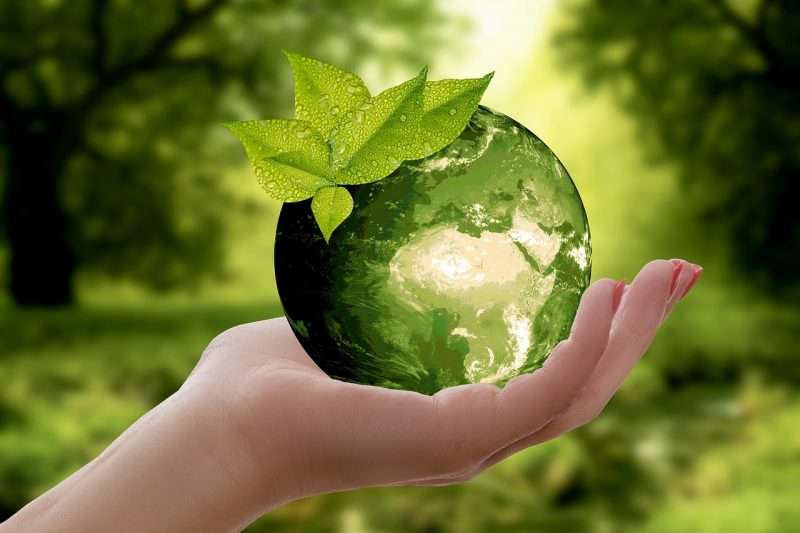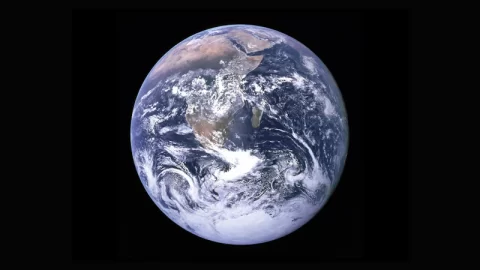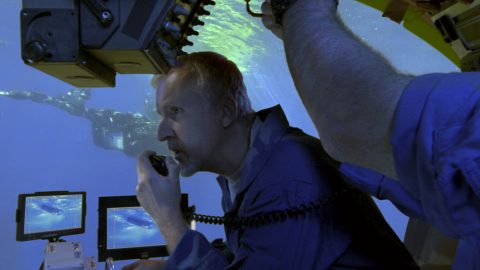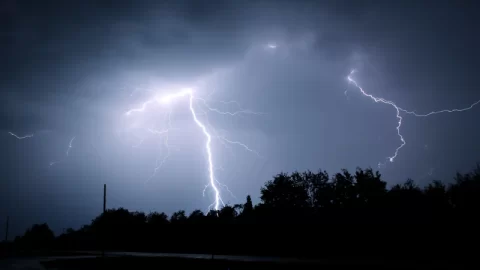Social cohesion is how we measure what holds us together, what makes us tick as a community. It’s deeply embedded in the level of trust we have for our community leaders and the extent we believe in a better future. It’s an important notion to consider as we look to 2024.
According to the Scanlon Institute that has measured social cohesion for some years, Australia’s social cohesion has reached an all-time low. The issues raised by the 2023 Scanlon Report show that we are losing trust in our community and where it is going.
The issues surveyed focus on the national government and its responsibilities. The loss of trust in having issues of concern solved are mostly related to cost of living and housing, but increasingly are about climate change.

Climate change is now seen as the biggest cause of pessimism in Australia about the future (much more than issues like China, a global economic downturn, Covid or military conflict). This is particularly evident in younger people.
The report is proof that climate change is now an existential crisis. The climate debates are now over, daily weather reports indicate that climate records are being constantly rewritten. The 2024 summer is already showing even more of this. So, the lack of cohesion is about how to fix climate change rapidly and appropriately.
For the Federal ALP Government there must be considerable concern that all their historic climate commitments being delivered in the past two years have not seemed enough to stop the loss in social cohesion and rise in pessimism over this issue. The most recent announcement at COP 28 of a massive increase in renewables assistance is likely to at least partly be caused by their own surveys that would indicate a similar lack of cut-through.
The Social Cohesion report was discussed recently on ABC RN by Walid Ali and Scott Stevens ‘In The Minefield’. They suggested that philosophers and sociologists like Jean Jacque Rousseau and Emile Durkheim, are helpful in how we approach social cohesion and hopefulness about our future.
They suggest, like the prophets of old in every major religion, that we cannot be two-faced in approaching our future. If we try to support two conflicting approaches to the future, we will simply not be believed. The result will be tacitly saying that the issues are unresolvable.
This can certainly be related to issues like Australia’s economic productivity which has been in stasis for a decade, and housing affordability which seems out of control. But it certainly also applies to climate change.
The biggest unresolved climate issue is the conflict between two factions clearly evident in the major parties and now working through in major policy conflict: renewables vs fossil fuel dependence. We are dramatically shifting the economy towards renewables whilst at the same time supporting gas, oil and even coal both locally and more importantly in exports.
This is all about the transition and how it is being perceived and accepted. Politics is always about balance but when climate change is happening as an existential experience there must be a bigger attempt made to resolve the underlying conflict between these two positions.
The political spectrum is not great on this resolution. The ALP has mostly been announcing support for renewables in increasing amounts of funding and programs whilst continuing support for fossil fuel growth. The Coalition are less adamant about achieving the renewables expansion and more about holding onto the fossil fuels and now confusing things further with nuclear that cannot help for decades. The Greens and Teals are strongly supporting the renewables transition and constantly questioning the support over new gas and coalfields but without a clear strategy of how to phase them out.
So, none of the parties have been able to resolve the conflict, including the Greens and Teals. This is not helped by industry which is caught in the same conflict. There are not enough fossil fuel companies in Australia showing how to make the transition credibly. Australians need to be able to perceive that our politicians and big companies are seriously addressing the phasing out of fossil fuels as well as the phasing in of renewables. Otherwise, it seems we are going nowhere.
Climate disconnection is the result and it is causing huge declines in social cohesion. Can we start some climate connection in 2024?
The next stage in climate policy must now address the phase-out, as well as the phase-in, and that cannot be addressed by rhetorical statements.
Both State and Federal Government remain caught in unresolved conflict over renewables in and fossil fuels out. The WA Government recently made a major policy announcement at the WA Energy Summit with the Premier Roger Cook supported by Chris Bowen and Madeleine King from the Federal Government. Their resolution of the conflict was that WA would need to increase its use of fossil fuels, especially gas, because we need them to remove coal from the power system, to provide ‘firming’ power, and to process our critical minerals.
These statements were laced with rhetoric about ‘meeting Asia’s needs’, to be ‘a reliable provider of resources’, that ‘metallurgical coal has no replacement’ and of course ‘clean natural gas’. No idea of a phase-out plan was there, simply growth that could not be stopped.
Responses from civil society and even business groups quickly showed that there were major issues with this two-faced approach. In particular there was little support from ACCR on the general approach that suggests LNG is needed for climate action and economic growth as these investments are likely to come crashing down.
Expanding fossil fuels to save the planet doesn’t pass the pub-test or the pew-test, and it is leading to a serious decline in social trust in our political system.
Resolving this conflict must have a detailed strategy for how the fossil fuels will decline as industry continues to plan only for growth well into 2070, and are seeking approvals in 2024 to enable this. These plans all depend on massive breakthroughs in the science and commerciality of Carbon Capture and Storage, which are seen as high risk ventures by global authorities like IPCC and IEA.
The global growth of WA gas is specifically addressed by groups like Climate Analytics and the Australia Institute and our own research in CUSP. While the national need for gas is addressed by professional groups such as IEEFA showing how gas demand can reduce by more then 40% by 2030 eradicating the gas supply gap.
It is not hard to see that this climate disconnect is unresolved. In 2024 we will continue to question bland statements by politicians and companies spending more on advertising their ‘clean’ products than on seriously entering the transition.
Coal has many phase-out examples across the world. Other companies like Orsted and places like Aberdeen have begun the oil and gas phase out journey successfully. We must take such strategies seriously as world best practice.
The credibility gap is widening. The public needs to see a serious strategy for real transition.
If not, then 2024 will show that Australia continued to undermine all our good work on renewables in building a socially coherent green economy.
* By Peter Newman AO, Professor of Sustainability, Curtin University
WHILE YOU’RE HERE –
PLEASE HELP US TO GROW FREMANTLE SHIPPING NEWS
FSN is a reader-supported, volunteer-assisted online magazine all about Fremantle. Thanks for helping to keep FSN keeping on!
** Don’t forget to SUBSCRIBE to receive your free copy of The Weekly Edition of the Shipping News each Friday!







